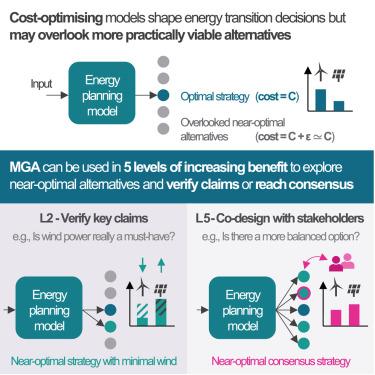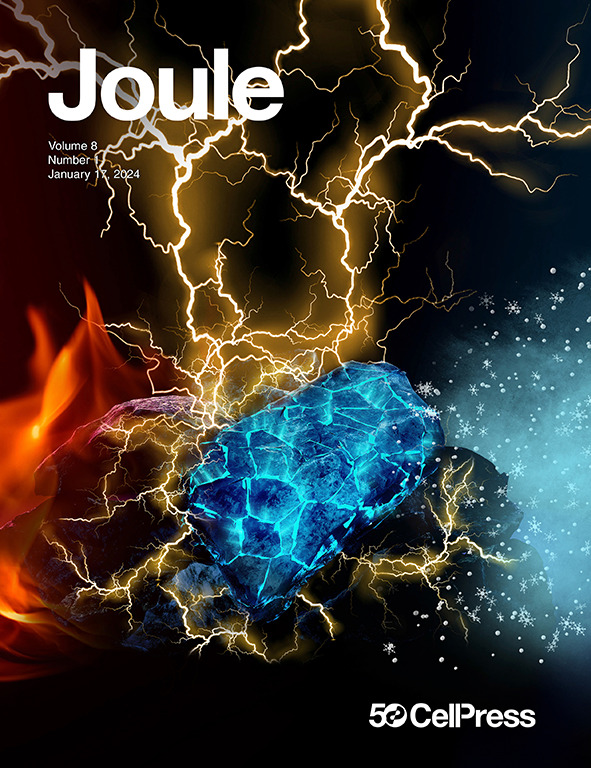近乎最优的能源规划策略与建模,以产生备选方案,灵活地探索实际理想的选择
IF 35.4
1区 材料科学
Q1 CHEMISTRY, PHYSICAL
引用次数: 0
摘要
成本优化能源规划模型广泛用于支持能源转型规划决策。尽管如此,寻找“成本最优”的规划策略只能提供一种错误的确定性。由于未考虑的特性,利益相关者可能更喜欢其他经济上可比较的替代方案。多目标优化或鲁棒优化可以有效地探索次要特征定义良好的备选方案。“建模生成备选方案”(MGA)系统地探索备选方案,包括其特征(如社会可行性)难以建模的备选方案,尽管这是实际实现的关键。计算和解释障碍阻碍了过去MGA的使用和与其他方法的集成,但最近的发展使这些障碍得以超越。我们综合了这些发展,并提出了在五个水平上应用MGA增加效益的实际建议。即使是最简单的级别,只需很少的计算工作,也可以大大提高能源规划分析的质量。在整合的最高水平上,MGA可以促进确定共识战略,加速能源转型。本文章由计算机程序翻译,如有差异,请以英文原文为准。

Near-optimal energy planning strategies with modeling to generate alternatives to flexibly explore practically desirable options
Cost-optimizing energy planning models are widespread in supporting energy transition planning decisions. Nonetheless, finding a “cost-optimal” planning strategy provides only a false sense of certainty. Stakeholders may prefer other economically comparable alternatives due to unaccounted-for features. Multi-objective or robust optimization, among others, can efficiently explore alternatives whose desired secondary features are well defined. “Modeling to generate alternatives” (MGA) explores alternatives systematically, including alternatives whose features, such as social viability, are hard to model, albeit key to practical implementation. Computational and interpretation barriers hindered past MGA usage and integration with other methods, but recent developments enable going beyond such barriers. We synthesize such developments and provide practical recommendations for applying MGA in five levels of increasing benefit. Even the simplest levels, requiring little computational effort, can substantially improve the quality of energy planning analyses. At the highest level of integration, MGA can facilitate identifying consensus strategies, accelerating the energy transition.
求助全文
通过发布文献求助,成功后即可免费获取论文全文。
去求助
来源期刊

Joule
Energy-General Energy
CiteScore
53.10
自引率
2.00%
发文量
198
期刊介绍:
Joule is a sister journal to Cell that focuses on research, analysis, and ideas related to sustainable energy. It aims to address the global challenge of the need for more sustainable energy solutions. Joule is a forward-looking journal that bridges disciplines and scales of energy research. It connects researchers and analysts working on scientific, technical, economic, policy, and social challenges related to sustainable energy. The journal covers a wide range of energy research, from fundamental laboratory studies on energy conversion and storage to global-level analysis. Joule aims to highlight and amplify the implications, challenges, and opportunities of novel energy research for different groups in the field.
 求助内容:
求助内容: 应助结果提醒方式:
应助结果提醒方式:


